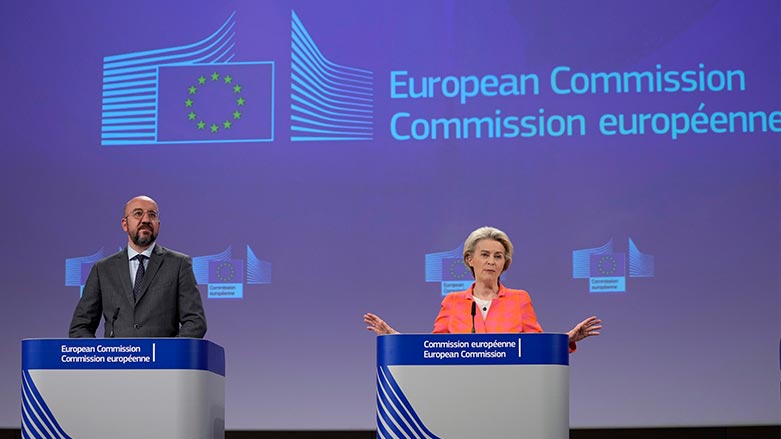High Turnout in Turkish Elections is positive: EU Commission President
“I think the massive turnout in these elections is really good news.”

ERBIL (Kurdistan 24) – European Commission President, Ursula von der Leyen, told Kurdistan24's correspondent Barzan Hassan on Monday that the high turnout in the Turkish elections is positive.
“I think the massive turnout in these elections is really good news. It's good news because it's a very clear sign that the Turkish people are committed to exercising their democratic rights to vote, and that they value the democratic institutions,” EC President von der Leyen said.
“This was a big win yesterday. Now, the elections are still open. We have to see for the second round, we are following the announcements and we have to see what the second round brings.”
Moreover, Charles Michel, President of the European Council said the turnout was very important and commended Turkish citizens. “The electoral process is always an important moment,” he said, “and we will closely follow the results of this electoral process.”
Turkey’s Supreme Election Council Chairman Ahmet Yener on Monday confirmed that Turkey is set to hold a second round of the presidential elections on May 28.
Both President Recep Tayyip Erdogan and his rival Kemal Kilicdaroglu were not able to secure the necessary 50% majority to outright win the initial round on Sunday. He confirmed the record voter turnout at nearly 89%.
The international election observation mission in a statement on Monday said observers “positively assessed the voting process in 96% of the 991 polling stations observed, and described the process as well-organized and smooth, The negative assessments were more frequent in (the Kurdish majority) South-East and the areas affected by the earthquakes.”
Moreover, the “overall voter turnout was reported at 89%. In most provinces affected by the earthquakes, the turnout was low